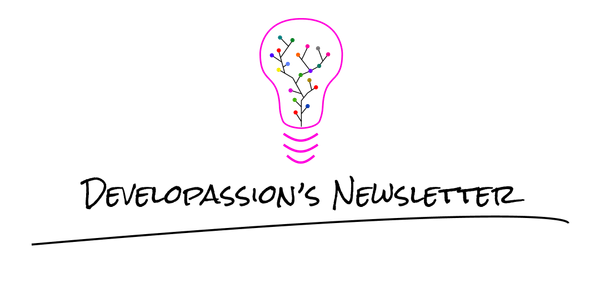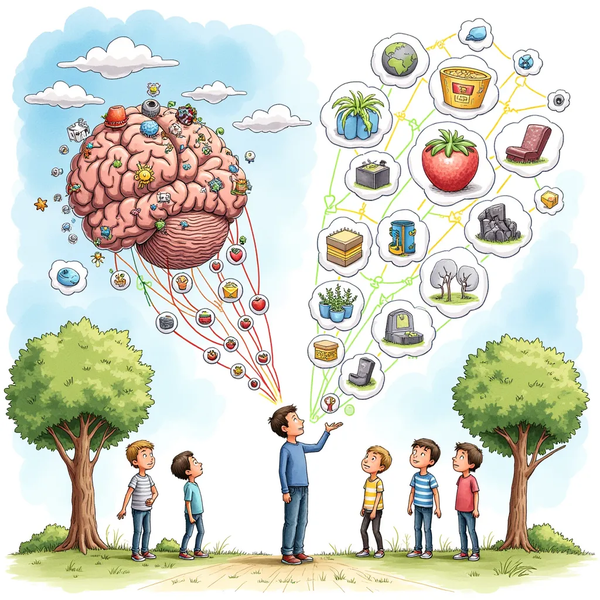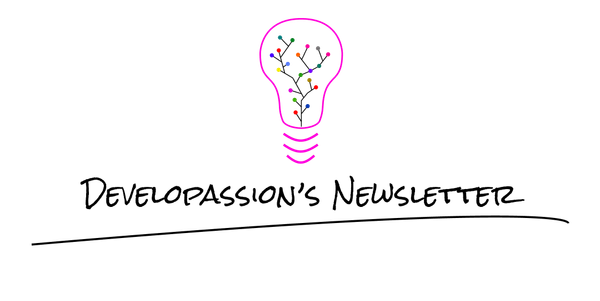How to capture book notes and turn those into smart notes
How to capture thoughts, ideas, and knowledge to retain more from the books you read
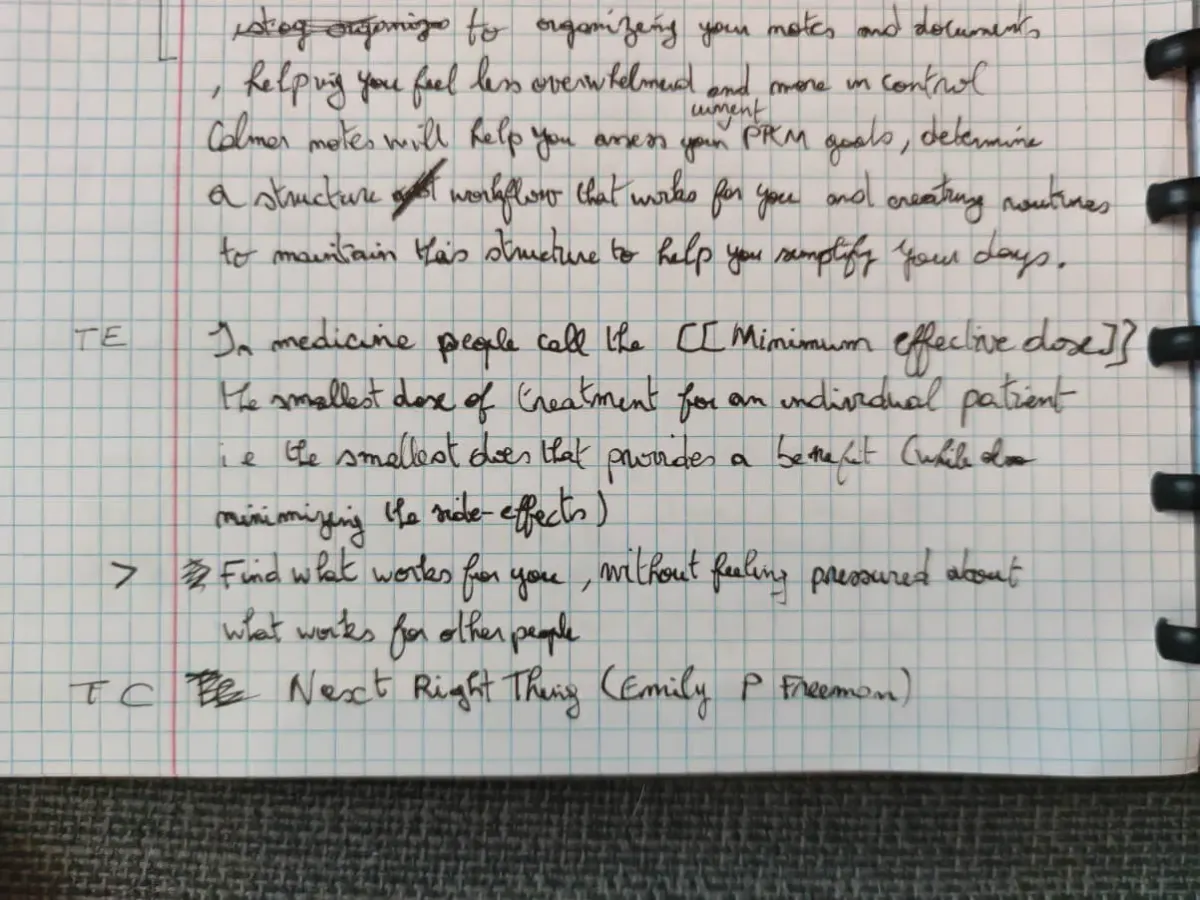
In this article, I'll explain how I retain most of what I read. I'll describe how I capture thoughts, ideas, knowledge, and quotes. You'll get to learn about the benefits of taking smart notes.
As you know if you've been following me, I'm really deep into note-taking and PKM. To me, there's no going back now. When I read non-fiction books, I have to capture the essence of what I read. Doing that takes time, but is very valuable.
You need to learn to read books
In a recent article, I've explained why it's essential to take notes while reading non-fiction books.
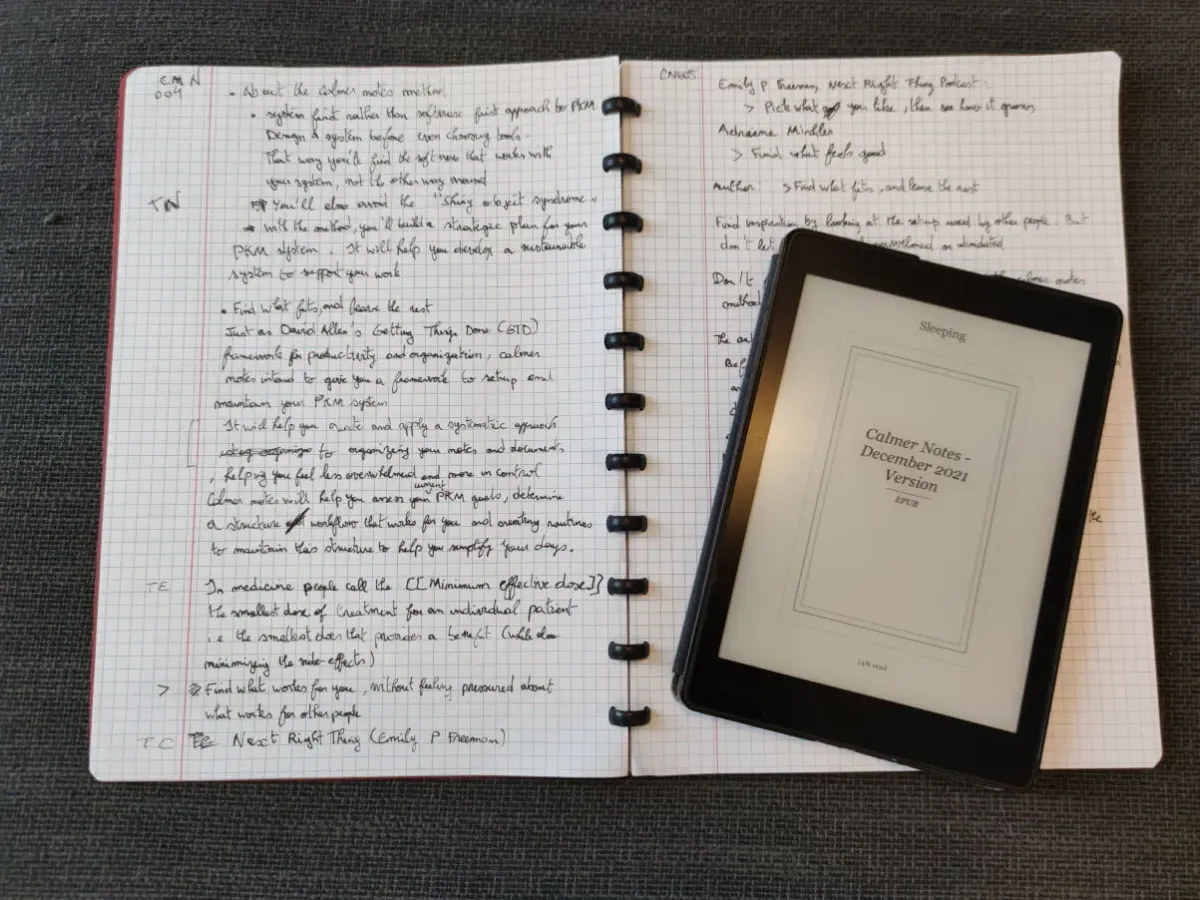
It's a point that I want to insist on. If you are not taking notes while reading non-fiction books, then you're wasting your time. You will definitely forget most of what you read, so you won't truly learn.
With that out of the way, now let me tell you about my process to capture the knowledge and wisdom you stumble upon, and how to transform those into smart notes.
Why book highlights are not enough
Some people highlight passages using their Kindle, and synchronize those using tools like Readwise or Instapaper, and that's fine. But I really prefer taking notes on paper. Paper gives me the ultimate freedom to go much further and create actually useful notes. Highlights are too synthetic. They only capture the source material as is, without any added value or personal touch. With paper, I can add a lot more to my notes while I read (and this is key!).
My goal when taking book notes is not only to capture verbatim sentences and quotes. Those are useful but only represent a small part of what I really care about. What matters most to me is writing down my thoughts, my understanding, my interpretation, my ideas, etc. My notes go above and beyond what the book offers.
While software developers work on a problem, they create a mental context with ideas and facts, that they need to be able to solve the puzzle in front of them. Whenever they're interrupted, that context gets lost and has to be rebuilt from scratch. This explains why interruptions are so detrimental to their productivity.
While we read books, it's exactly the same. Sentence after sentence, we accumulate information in our short-term memory. We retain a part of what we just read, and thus we build ourselves a mental context. That context is essential because it helps us interpret everything we read in a certain way. When the same information is taken out of that context, it is difficult to interpret it the same way. That's another reason why I don't rely too much on book highlights. Highlights are often read much later. They remain useful to capture exact quotes and examples, but paper notes are much more useful and remain relevant long after the mental context has been lost.
How to take notes while reading non-fiction books
My process is straightforward. I read a few paragraphs at a time, very carefully. Once I get the ideas behind those (usually after 1-3 attempts), I start writing down what I understood. I write a paragraph or two using my own words. Importantly, I try to avoid making assumptions about what the reader knows. I write as if I was explaining the ideas to a child. This is a safety measure I use because I know that I will forget most of what I read. That way, I have more chances of being able to capture the information in a way that my future self will be able to understand.

When I take notes, I focus on capturing all the signal, while avoiding as much noise as possible. In that sense, my notes are bona fide summaries. While books often include stories to put ideas in context, I usually don't capture those; they often convey little information. But my notes are not dry summaries, on the contrary. Once I have finished describing an idea, I take some time to ponder a few questions:
- How do I feel about the information presented?
- Did I encounter this idea before?
- Do I agree?
- Is this information useful/relevant?
- Are there unclear aspects?
- Do I need to learn more about one of the points?
- Does this make me think of additional points?
I try to pay attention to all the thoughts, ideas, and questions that arise as a result. I then focus on capturing the relevant ones using a mix of annotations, tags, and sentences.
Here's an example:
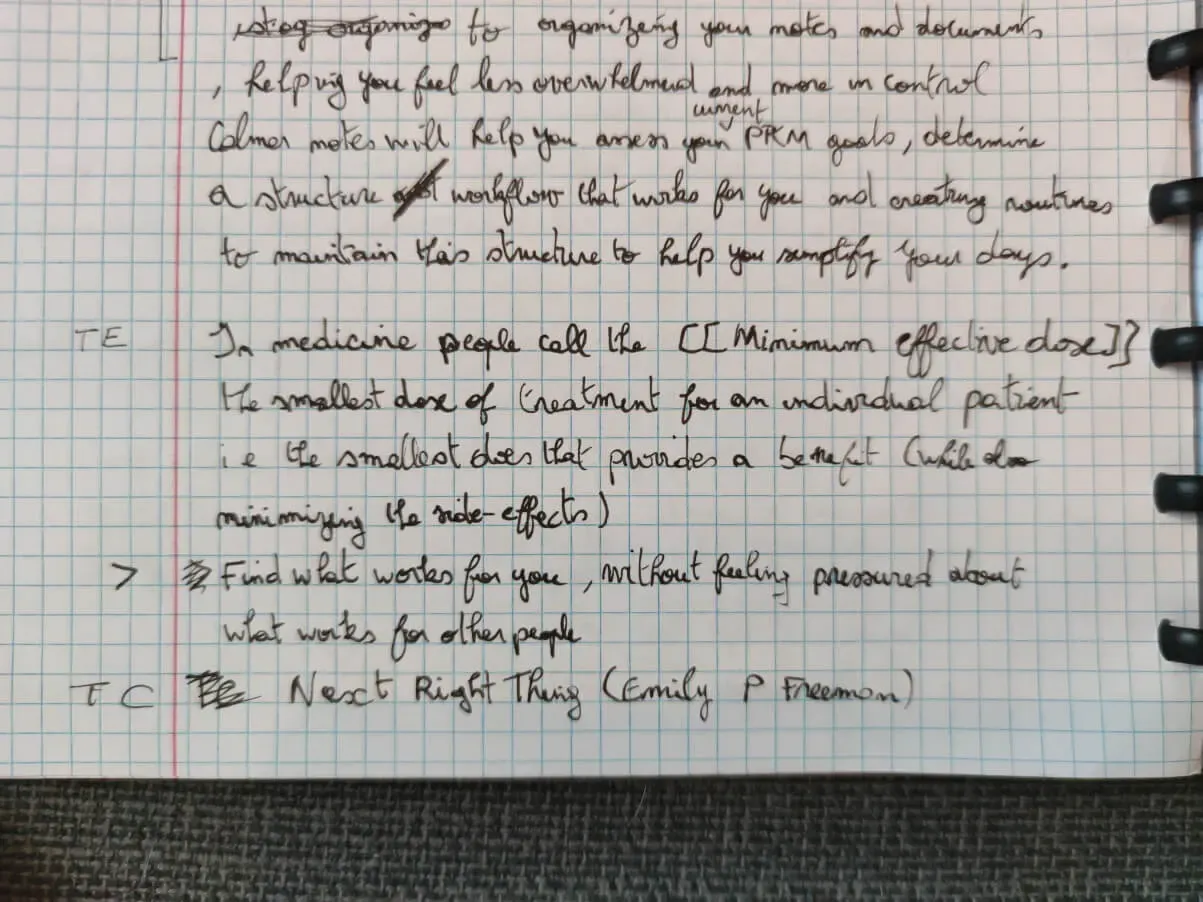
These are a few of the notes I took while reading Calmer Notes by Elizabeth Butler. On the left, you can see some of my annotations:
TE: To Explore. Something that I want to think about further and/or that I want to link with other ideas in my knowledge base. I usually accompany those with Wiki-style links[[...]]>: A quoteTC: To Check. Something that I want to learn more about
Those annotations are reminders there to inform my future self about what to do with those notes. They serve as pointers and as a local to-do list capturing my intent. I have other ones (e.g., TR, TODO, ??, !!, etc), but it's not that important. You shouldn't copy this, but rather define a system that is relevant and works for your own mind.
There you have it, that's all I have to say about paper notes. Capture the signal; the essence of what you read. Use your own words and don't assume too much about what your future self will remember. Make sure to capture your own thoughts and ideas. Don't stop there though. If you do, you will only have done a fraction of the work, and you won't get much value out of the process.
How to take smart notes
Taking notes while reading is just the very first step of the note-making process. I consider that paper notes have no long-term value; they're just useful as a transient medium to capture freeform ideas and thoughts while reading. If you really want to retain more of what you read and get tangible long-term benefits, you need to turn those paper notes into smart notes. To me, smart notes can't remain on paper. I need to convert those into digital notes, connected with the rest of my personal knowledge management system.

As I see it, there are major issues with paper notes. They're not usable, they're easy to lose and they're not connected with the rest of my notes. Going through paper notes to find information is slow and inefficient, plus those are not always readily available. The truth is I don't need more paper in my life; I need less. I need to be able to use computers and programs to assist my thinking, whenever and wherever.
That's why I turn my notes into smart ones as I progress through books. I do this once or twice a week in order to still have (at least a part of) the mental context available. I take all my paper notes right next to me, fire up my editor, and open the summary note for the book I'm busy with. As I've explained before, I use Obsidian as my main digital note-taking solution.
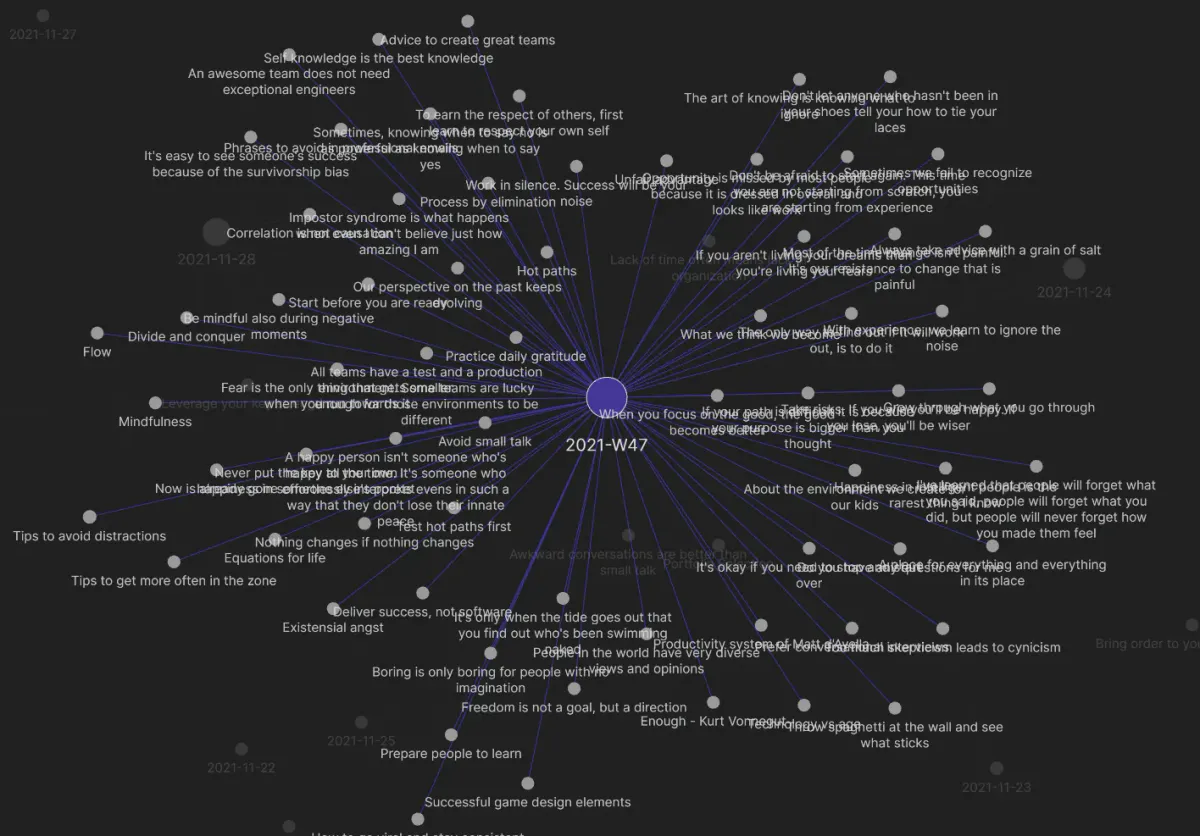
I create a single note per book (under my Literature notes\Book notes folder), using a simple base structure. Here's an example:
---
title: Organize Your Mind Organize Your Life
summary: A method to organize your mind, focus your attention, achieve your goals, and avoid feeling overwhelmed
tags: [books,summary,creativity,work,neuroscience,brain,focus,attention]
link: https://amzn.to/3gXs70N
---
# Organize Your Mind Organize Your Life
Authors: [[Paul Hammerness]], [[Margaret Moore]]
## Introduction
...
## Chapter 1: ...
...
## Chapter 2: ...
...
## Lessons learned
...
I use YAML front matter to document the metadata about the book. I keep the list of author(s) aside because I like creating and linking to dedicated notes for them. This allows me to store information about the authors separately from the book summaries. My goal is not to actually create a clone of Wikipedia, but rather to capture everything that is of interest to me. In the author notes, I capture information about the books they wrote and that I read, other things they're working on, relevant links, etc. Here's an example of such a note:
---
tags: [people, entrepreneur, author, indie_hacker]
---
# Arvid Kahl
Bootstrapped a SaaS business with his wife, before going full-circle and selling it. Then he leveraged his expertise and experience to write books about bootstrapping:
- [[Zero to Sold]]
- [[The Embedded Entrepreneur]]
The ideas he discusses in the embedded entrepreneur are very similar to those shared by [[Sahil Lavingia]] in [[The Minimalist Entrepreneur]]
He now (2022) creates online courses (e.g., about Twitter and audience building)
Over time, I build my own picture of the people I'm interested in. As a creator and author, I'm interested in doing this because I'm curious about how they approach their work and manage to become successful.
Inside the summary note for a book, I transcribe my paper notes one paragraph at a time, taking the opportunity to review my thinking, my annotations, etc. While doing so, I take time to do more research if/when needed (e.g., explore book recommendations, other works, interesting articles, information about specific topics, etc).
I create separate notes where appropriate (e.g., for quotes), and never hesitate to duplicate content between the book summary note and other notes that I create along the way.

Introducing book notes into my PKM system results in the creation of a network of notes: the book summary notes + many atomic notes. In addition, I also take every opportunity to link all of those notes with the rest of my PKM. Often I explore possible connections through tags and the graph view. I also update my Maps of Content (MOCs) to mention any relevant links.
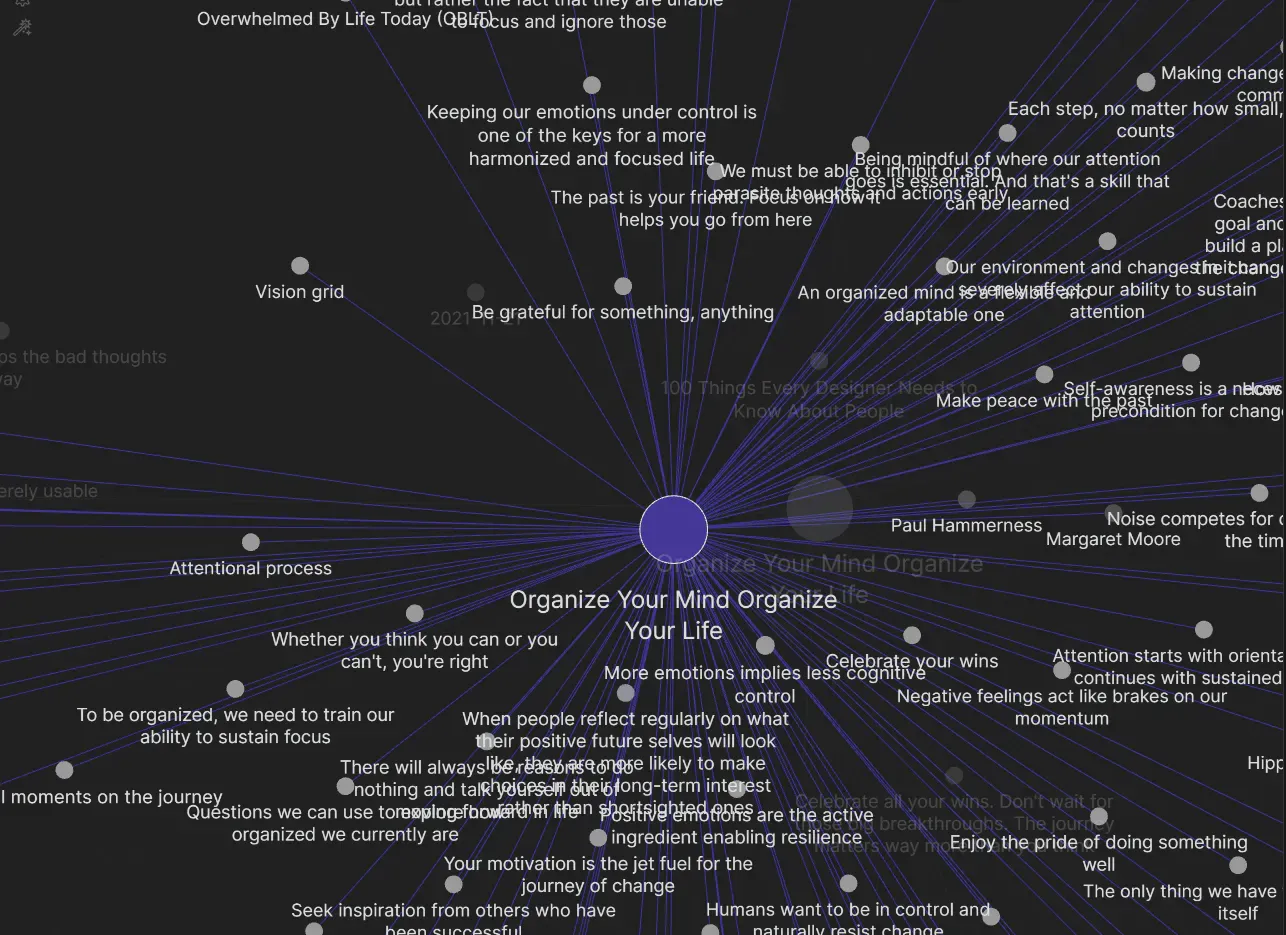
As you can see, there are many links from the book summary. And I've only added about half of my notes about that book.
During those sessions, many ideas pop, and while I want to capture those, I try to avoid wandering too far away from the topic of the book. To that end, I capture those thoughts and ideas as fleeting notes, for further exploration.
Let's take a closer look at a small example:
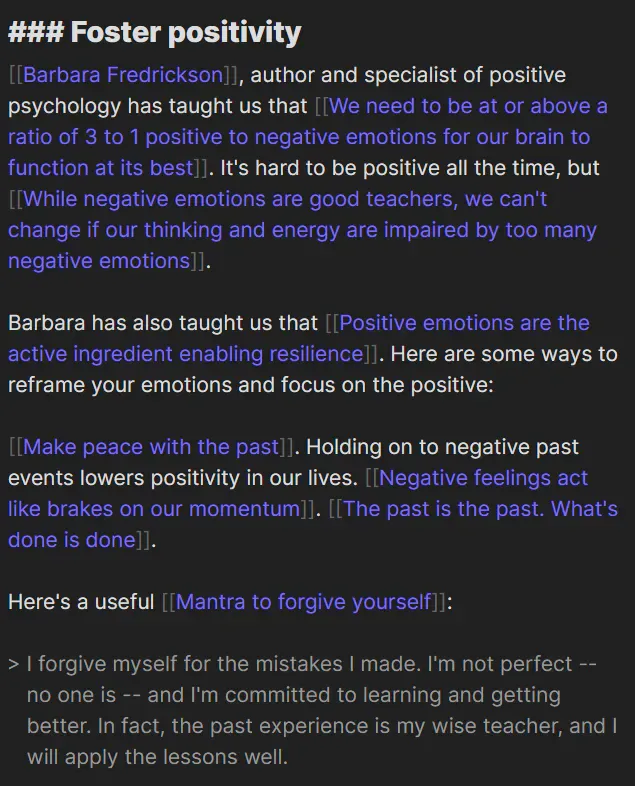
For each of the atomic notes that I create as part of the process, I use a title that helps me make sense of the idea in a jiffy but also enables me to insert that note as part of a larger body of text. Each of those notes has dedicated tags. For instance, the first note "We need to be at or above a ratio of ..." has the following tags: #positivity #positive_psychology #negativity #emotions #neuroscience #brain. These tags allow me to correlate ideas coming from different sources. Also, each of those separate notes also includes links to other relevant ones, link to persons, etc.
In the example above:
Barbara Fredricksonis a person notePositive emotions are the active ingredient enabling resilienceis an atomic note that explains how positive emotions relate to resilienceThe past is the past. What's done is doneis a quote that I've captured separately and tagged with#expressions #past #acceptance #forgivenessMantra to forgive yourselfis another atomic note in which I've captured the mantra and tagged it with#forgiveness #past #mantras. As you can see, the mantra is also present below the link. I've decided to duplicate it because I want the book notes to be easy to read without having to navigate to the link. But I have extracted it to a separate note because I find it valuable elsewhere as well. Later, I want to start using content projections instead of duplicating the information.
Here's another example:
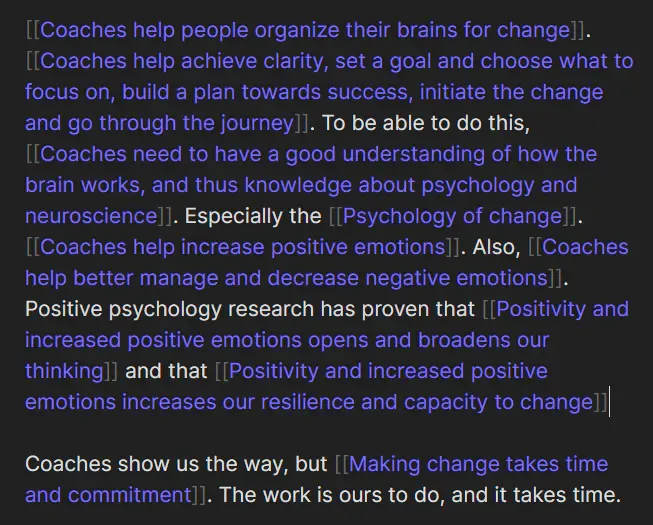
I'll concede that this one is a bit extreme 😂. Nevertheless, it's a good example of how I extract atomic ideas from a book summary. I have a deep interest in coaching, so it makes sense for me to capture those ideas separately. And I prefer having many atomic notes rather than a single one called "Coaching". To me, the only usefulness of a generic note like "Coaching" is to serve as an index for the corresponding topic.
Once I'm done, I throw away the paper notes; I don't need those anymore.
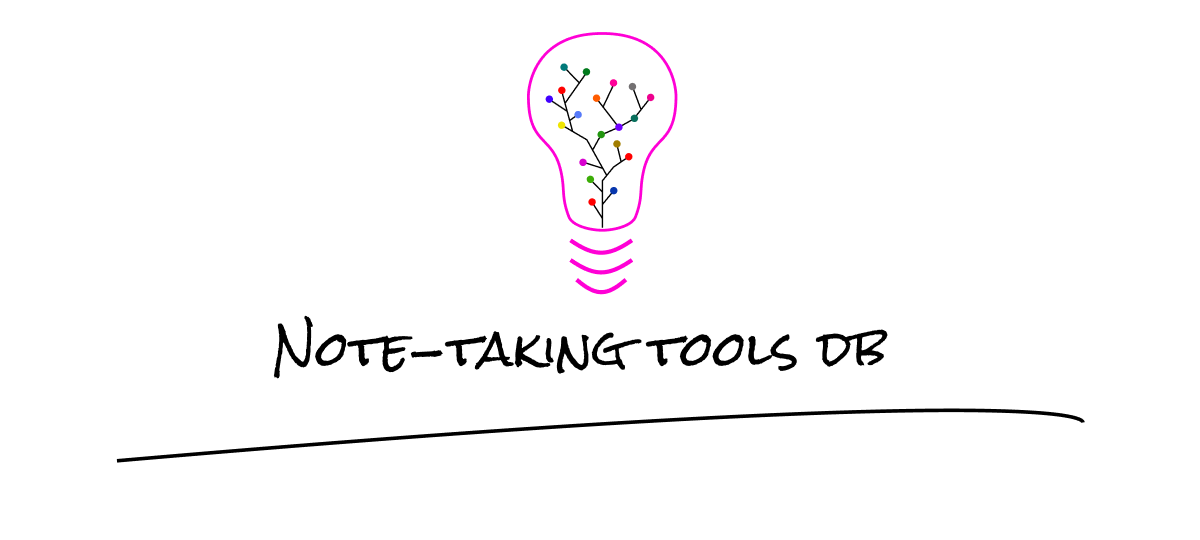
Progressive summarization and tagging
The process of extracting atomic notes is also useful to summarize the content and the ideas. Whenever I create separate notes, those hold a single idea in its simplest form (for me at least!), and the title is generally the best summary.
Once I have added notes for a chapter, I try to summarize the main takeaways, although I don't do this consistently yet. Finally, once I'm done with the book, I create a summary of the main points.
As I do this, I explore how my notes relate to each other, for instance through the tag cloud:
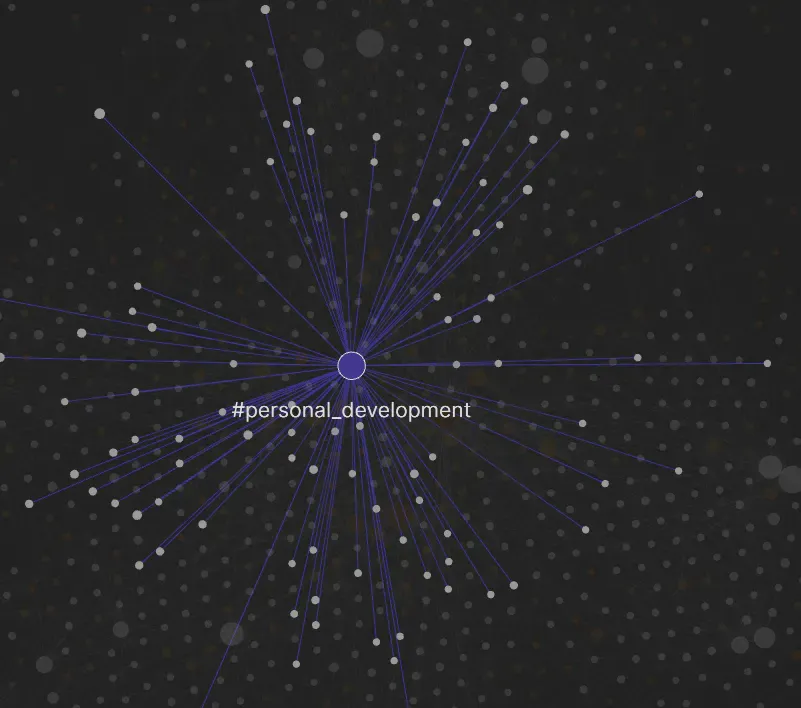
I also like exploring relationships by searching for combinations of tags:
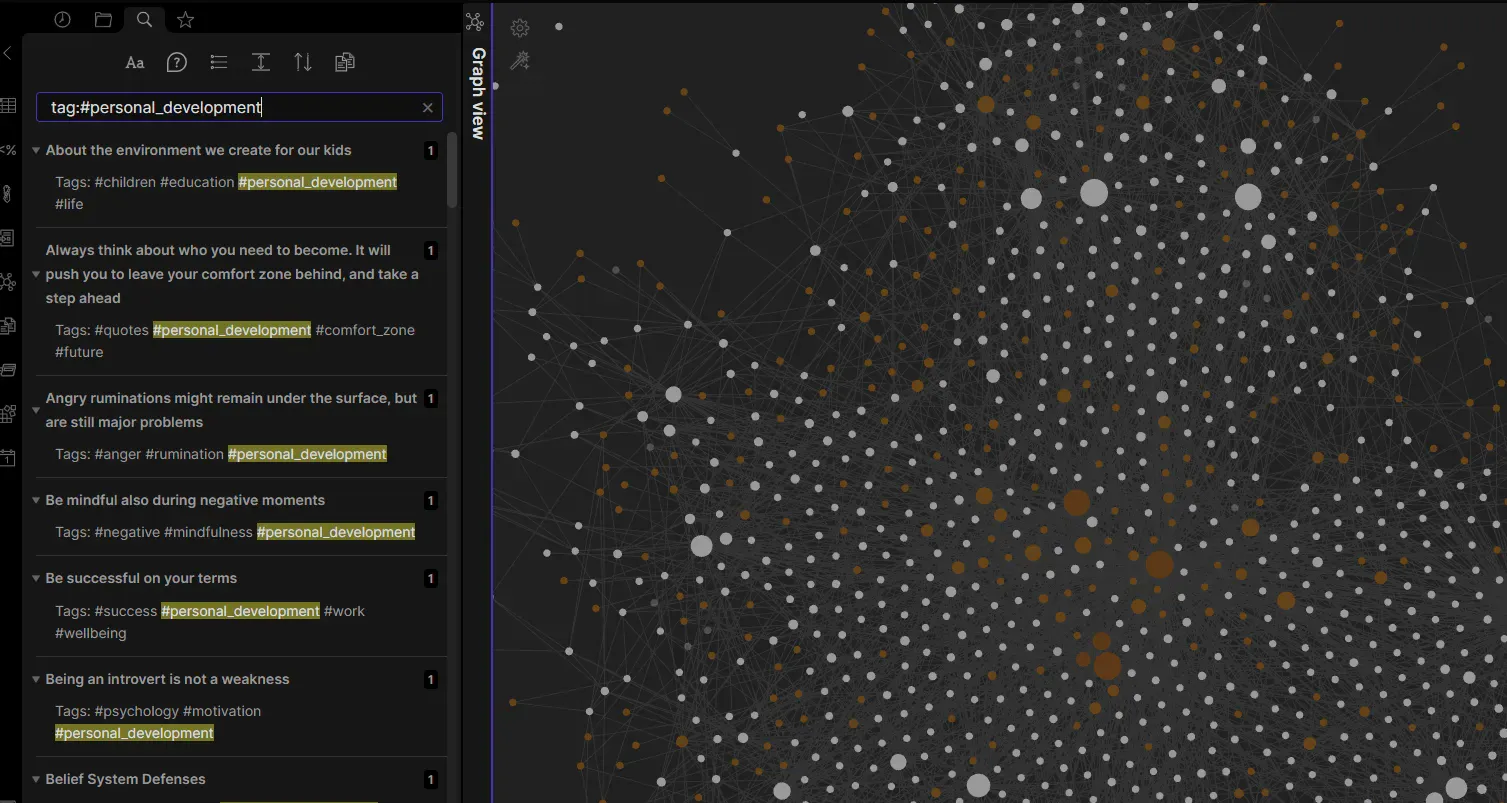
Last but not least, I also often leverage the Smart Connections plugin for Obsidian.

Actionable learnings
With non-fiction books, there are many lessons to be learned, and interesting ideas that we can incorporate into our lives. As part of my process, I try to identify the actionable learnings. Then, depending on whether those make sense for me now or not, I think about what I would change in my life. But that's a story for another day ;-)
Nevertheless, for each of those, I tend to create separate notes that I link to, since those represent First Principles that I'll probably be able to reuse later.
What are the benefits of taking smart notes while reading non-fiction?
These smart notes and the process behind their creation are very valuable to me. The first reason is that the process itself forces me to read carefully and focus. This improves my understanding and helps with retention. The second one is that while I add the notes to my PKM and because I go the extra mile, I learn more and expand my knowledge. As a lifelong learner, I could do this all day. Third, I strengthen my ideas about different topics and create links between various ideas I encounter. This is something I can do with my mind but on a much more limited scale. My PKM allows doing this on a completely different level.
Once I'm done, I end up with a detailed summary that stands on its own, meaning that I retain a lot more of what I read. Also, that summary is deeply connected with the rest of my knowledge, which means that I have opportunities to reuse the information in various contexts. As an author, this has tremendous value.
As an added benefit, I'm having tons of fun doing this because I love learning, thinking, writing, and exploring ideas.
Conclusion
In this article, I've explained why book highlights are not enough. I've described the process I use to capture the essence of the non-fiction books I read, and how I turn all that signal into smart notes, as part of my Personal Knowledge Management system. Hopefully, discovering this approach will give you concrete ideas about how to retain more of what you read.
Note that while I personally get many benefits out of doing this, I reckon that those benefits are personal. Your mileage may vary. Take what sounds interesting, experiment, and design your own process.
I'm curious to know about your own approach!
That's it for today! ✨
References
- Why it's essential to take notes while reading non-fiction books.
- Notes properties (YAML frontmatter)
- Smart Connections plugin for Obsidian
- Calmer Notes
- The Must Have Obsidian plugins
- Free PKM Tools Database
About Sébastien
I am Sébastien Dubois. You can follow me on X 🐦 and on BlueSky 🦋.
I am an author, founder, and coach. I write books and articles about Knowledge Work, Personal Knowledge Management, Note-taking, Lifelong Learning, Personal Organization, and Zen Productivity. I also craft lovely digital products . You can learn more about my projects here.
If you want to follow my work, then become a member.
Ready to get to the next level?
To embark on your Knowledge Management journey, consider investing in resources that will equip you with the tools and strategies you need. Check out the Obsidian Starter Kit and the accompanying video course. It will give you a rock-solid starting point for your note-taking and Knowledge Management efforts.
If you want to take a more holistic approach, then the Knowledge Worker Kit is for you. It covers PKM, but expands into productivity, personal organization, project/task management, and more:
If you are in a hurry, then do not hesitate to book a coaching session with me:






